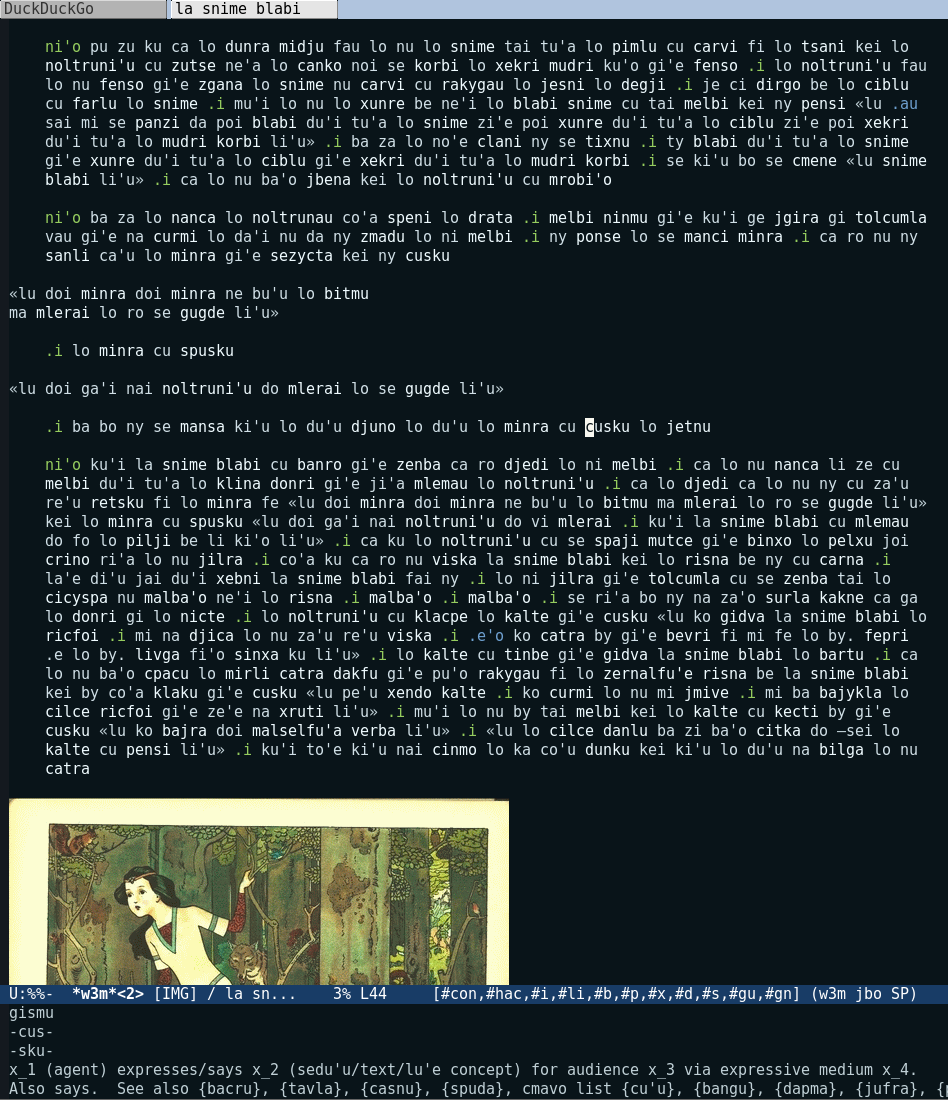Lojban
The first time I heard of Lojban was about 10 years ago, and since then
attempted to learn it a few times, but I kept switching to something
else after a day or two. Recently I've finally went through la karda, a
few crash course lessons, wave lessons, and started
reading la snime
blabi. Decided to write the first impressions here, along with
relevant links.
Together with the lessons, it's useful to check the sentences in a
parser such as camxes (there's a few versions, the linked one seems to
be more up-to-date than others), and there is vlasisku to translate
lujvo (compound terms, a basic stardict dictionary won't handle those).
I'm also using emacs lojban-mode, and stardict.el with a lojban
dictionary, which is a handy combination:

A reference (by the same John Cowan who work{s,ed} on XML, Unicode,
R7RS, and other things) is quite helpful, as is the #lojban channel on
Freenode/Libera.chat.
Pleasant bits and expectations
At first it seemed like the language mostly consists of selbri, or
verbs, or relations – which can be combined into tanru (used as
adjectives), turned into sumti (nouns), or modified in a few ways. It
looks uniform and simple.
There's a PEG, which is nice too: one can parse the language
unambiguously, and following a set of rules. It also allows to implement
structured editing, and observing the parse tree helps to learn the
language.
Time and space constructs, as well as logical connectives, are designed,
hence are not as chaotic and messy as in natural languages.
Morphology is nice and helpful. Plenty of good things, actually.
Unpleasant bits and disappointments
It's not quite minimalistic or elegant: the linked PEG file is
84+ KB, for instance. There's a lot of cmavo, and no
[semi-]formal rules by which they are defined (hence a lot of
special cases): neither syntax nor semantics follow any basic
rules, it seems, making it to look and feel much more like a
natural language than like a constructed one (as I would
imagine such a language before, at least). Likewise with logic
(connectives, quantifiers) in it: though it escapes ambiguity,
it appears to be designed to resemble common constructs of
natural languages.
Maybe it all makes more sense to linguists, and maybe it would
be awkward to use selbri instead of most of the cmavo. Or it's
just a bunch of arbitrary decisions, as in most of the
programming languages, where users are not expected to learn
and follow the rules strictly, but rather to read and write
things intuitively.
Besides, there are informal dialects with relaxed rules, apparently,
which also seem to work like a natural language evolution, eliminating
the potentially nice properties.
Overall impressions
Probably I'll continue learning Lojban someday, though being
less enthusiastic about it now.
